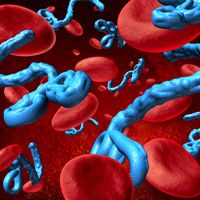Article
WHO Announces Update on Ebola Outbreak
Author(s):
The World Health Organization continued its efforts to battle the ongoing Ebola outbreak with a second meeting of its Emergency Committee tackling the virus.

The World Health Organization (WHO) continued its efforts to battle the ongoing Ebola outbreak with a second meeting of its Emergency Committee tackling the virus.
A statement from the WHO said the meeting discussed the situation in several countries, including Guinea, Liberia, Sierra Leone, Nigeria, and Senegal and said that there is still much more work that needs to be done before the outbreak reaches its end.
One of the biggest points the committee made was to highlight the fact that although isolating the affected countries helps contain the virus, doing so also causes harm to the local economies and makes aid efforts more difficult. “The Committee strongly reiterated that there should be no ban on international travel or trade, except for the restrictions outlined in the previous recommendations regarding the travel of EVD cases and contacts,” the statement noted.
Another recommendation from the committee was that the affected countries should “fully engage with the transport sector, especially the aviation and maritime sectors, to facilitate a mutual understanding of potentially diverse viewpoints and develop a coordinated response.”
As the virus has continued to spread, the affected countries have instituted various levels of quarantines and isolation techniques in an effort to keep the situation from growing worse. The WHO encouraged those countries to “ensure that they are proportionate and evidence-based, and that accurate information, essential services and commodities, including food and water, are provided to the affected populations.”
While there are many steps that can and should be taken during this medical emergency, the committee noted, “All states should reinforce preparedness, validate preparation plans and check their state of preparedness through simulations and adequate training of personnel.”
They also said that during this time it was important for even non-affected countries to assist with efforts to stop the outbreak from spreading further. That, they noted, would include assisting with mobilization of personnel and goods among other steps that should be taken.
WHO Director-General Margaret Chan said the Ebola outbreak “continued to constitute a Public Health Emergency of International Concern.” As a result the “Temporary Recommendations” that had been issued last month by the WHO were extended and amended based on the most recent committee feedback.


